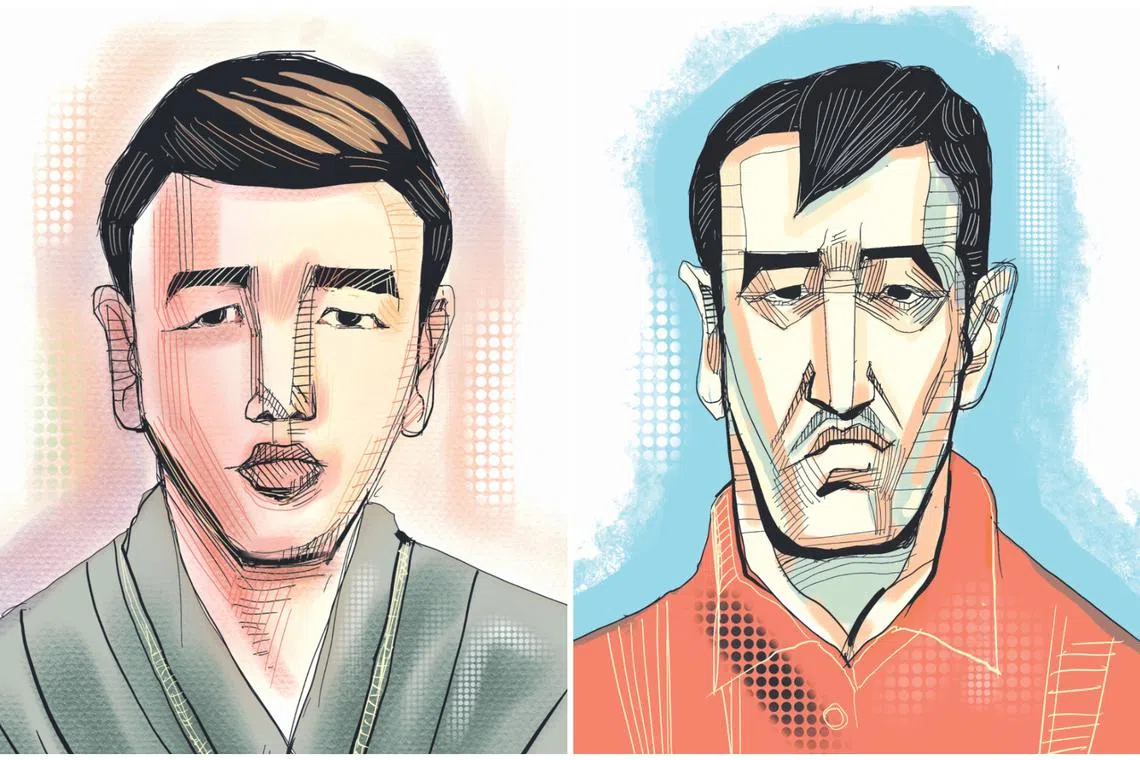$3b money laundering case: Su Haijin, Wang Dehai stripped of Cypriot citizenship
Sign up now: Get ST's newsletters delivered to your inbox

The “golden passports” held by Su Haijin (left) and Wang Dehai were revoked by Cyprus’ Council of Ministers.
ST ILLUSTRATIONS: CEL GULAPA
Follow topic:
- Su Haijin and Wang Dehai, involved in Singapore’s $3 billion money laundering case, had their Cypriot "golden passports" revoked due to criminal proceedings against them.
- Cyprus' citizenship through investment scheme, which granted passports to those facing criminal charges, was shut in 2020; 306 people have lost citizenship so far.
- Nations offering easy citizenship, like Saint Kitts and Nevis, face pressure to tighten rules, though these programmes are vital for their economies.
AI generated
SINGAPORE - Two men involved in Singapore’s $3 billion money laundering case
The “golden passports” held by Su Haijin and Wang Dehai were revoked by Cyprus’ Council of Ministers, according to an Aug 4 report in the Cypriot daily newspaper Politis.
A golden passport
According to the report, 88 investors and 218 of their family members have been stripped of their Cypriot citizenship to date.
The island state in Europe had offered a citizenship through investment scheme, which was cancelled in 2020 following an Al Jazeera report.
The report revealed that of over 2,500 people who secured a Cypriot passport from 2017 to 2019, dozens faced criminal charges in another country, had a prior conviction or were under international sanctions.
Su and Wang were among 10 foreigners arrested in Singapore in August 2023 in an anti-money laundering operation which involved around 400 officers.
The Politis report did not state the amounts they had invested to acquire their Cypriot citizenship.
Quoting Cyprus’ Ministry of Interior, the news organisation said the country’s Ministry of Internal Affairs was informed that the two men were facing criminal proceedings.
With their conviction, the ministry proceeded to cancel their citizenship. The report did not state the exact date it did so.
Su was sentenced to 14 months’ jail in April 2024 after he pleaded guilty to money laundering charges
Wang was sentenced to 16 months’ jail
Both of them were deported – Su to Cambodia, and Wang to the United Kingdom – in 2024. They were involved in the largest money laundering case in Singapore’s history, which saw more than $3 billion in assets seized.
The nine men and one woman involved in the case were sentenced to between 13 and 17 months’ jail. All of them have been deported and barred from re-entering Singapore.
All 10 originated from China, but some of them held foreign passports from countries such as Cyprus, Turkey, Vanuatu, Saint Kitts and Nevis, and Cambodia.
Turkish national Vang Shuiming, who was among those convicted in the case, was back in the news after he was arrested in Montenegro in February
Vang, deported to Japan from Singapore after completing his jail term, reportedly flew on a private plane to the Balkan nation from the Maldives.
The Organised Crime and Corruption Reporting Project, a non-governmental organisation involved in investigative journalism, reported in February that Montenegro was expected to extradite Vang to China, where he is wanted for allegedly running illegal gambling operations.
Multiple passports
Countries that granted “golden passports” are facing pressure to cancel their programmes.
They include Vanuatu, Saint Kitts and Nevis, and Cyprus, which are on a watchlist of at least 14 nations flagged by the Organisation for Economic Cooperation and Development (OECD) because of how quickly and easily they grant citizenship or long-term residency.
For example, it takes only four months and a donation of US$250,000 (S$321,000) or investment of US$400,000 to secure a Saint Kitts and Nevis passport.
OECD said these citizenship-through-investment schemes are attractive to criminals and corrupt officials seeking to evade justice and launder the proceeds of crime reaching into the billions.
A passport issued by Cyprus, a member of the European Union, was coveted as it grants its holder the right to live and work in all 27 EU states as well as visa-free access to over 170 countries.
Jho Low, the Malaysian financier allegedly involved in the 1Malaysia Development Berhad scandal, was granted citizenship in 2015. It was revoked in June 2024.
The international police organisation Interpol, anti-money laundering regulators and governments have been pressing for tighter reins or an outright ban on the issuance of golden passports, with some success.
Bulgaria ended its investor citizenship scheme in 2022, while Ireland announced in 2023 that it was scrapping its popular golden visa programme.


